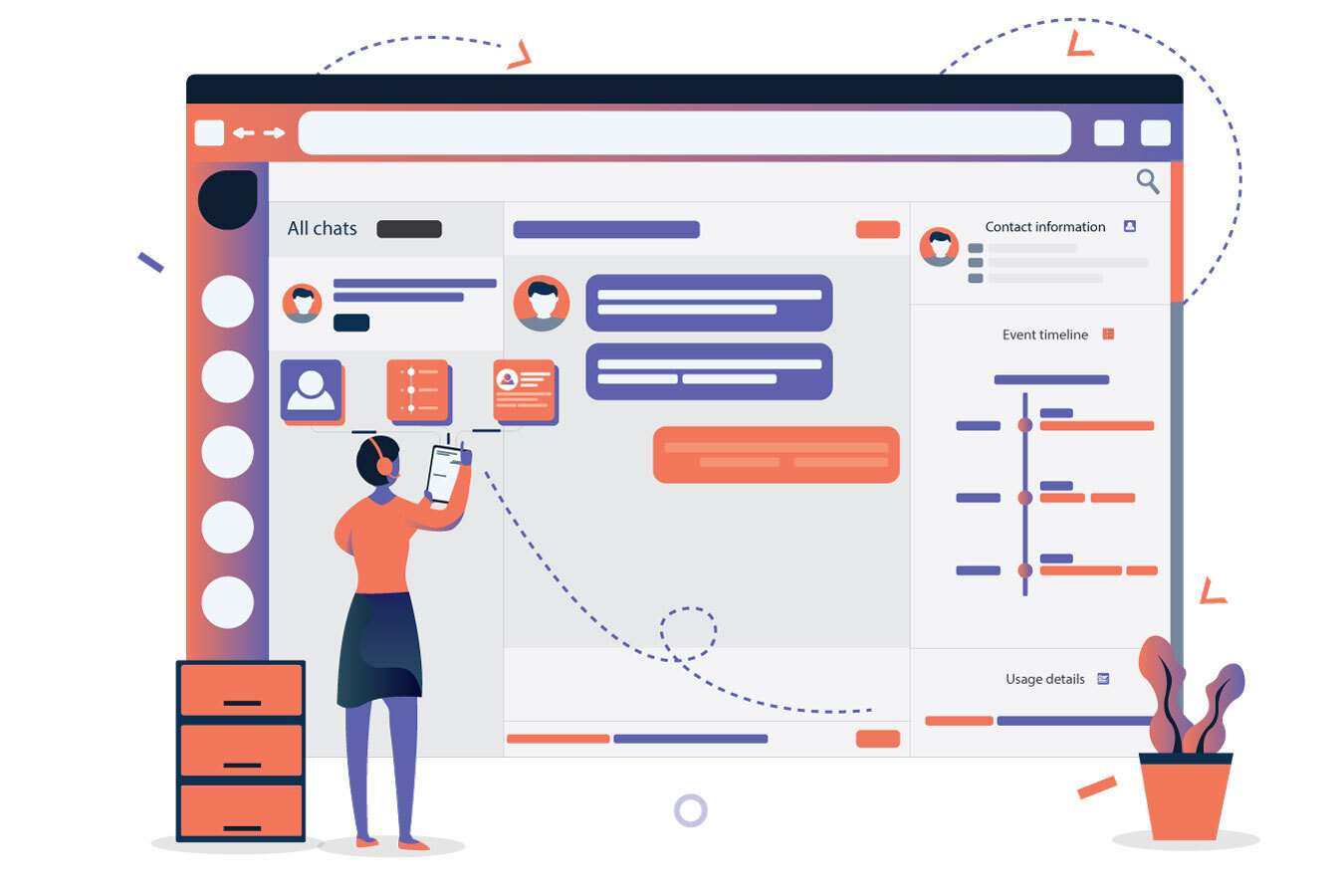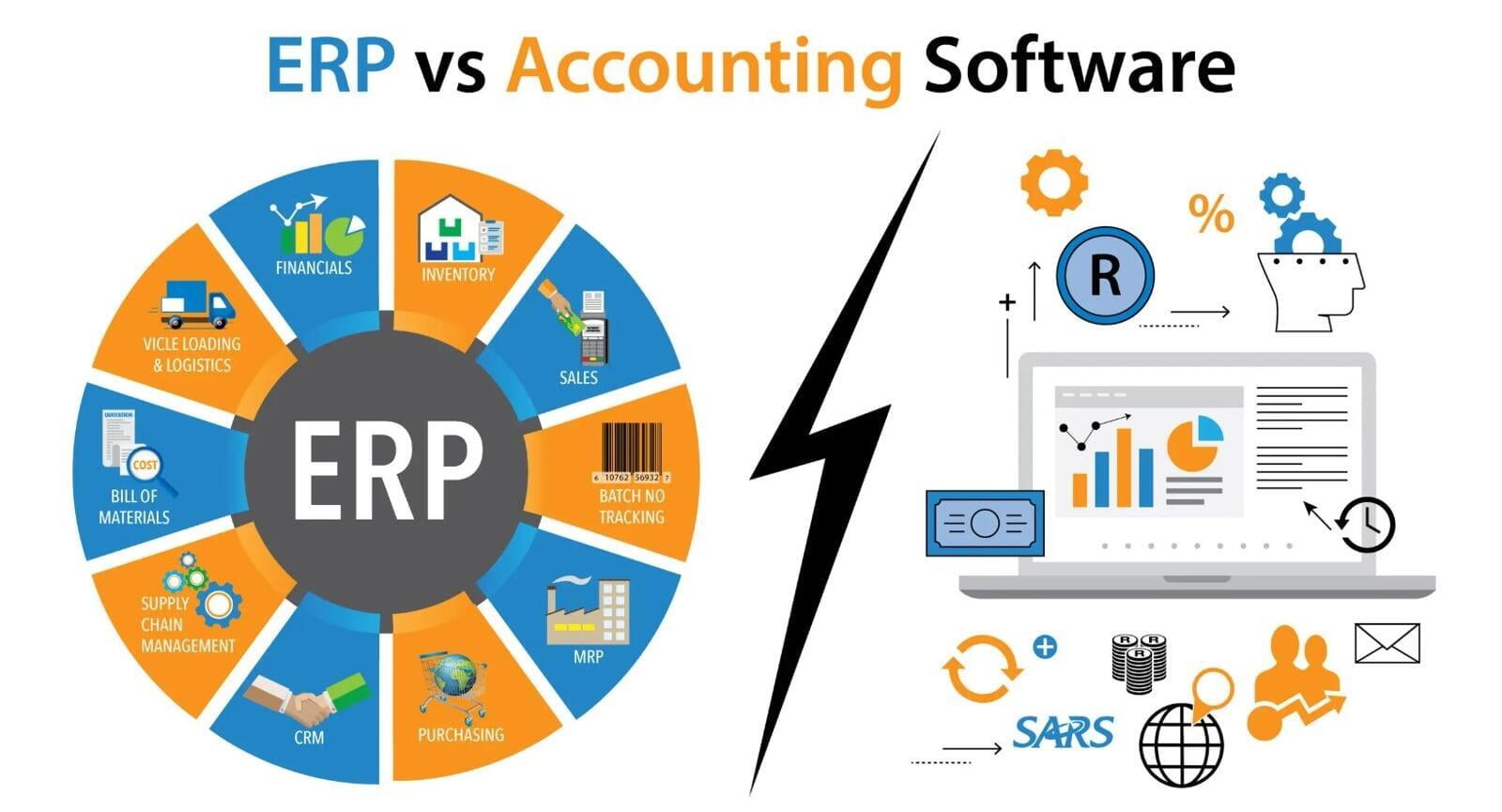In today’s competitive business landscape, integrating best CRM and accounting software has become indispensable for organizations seeking to streamline operations, enhance customer relationships, and drive growth. This article delves into the world of CRM and accounting software, exploring their evolution, benefits, key features, and implementation strategies.
As businesses strive to optimize their processes, the synergy between CRM and accounting software has emerged as a game-changer, offering a comprehensive solution for managing customer interactions, automating financial tasks, and gaining valuable insights into business performance.
Overview of Best CRM and Accounting Software
In today’s competitive business landscape, integrating customer relationship management (CRM) and accounting software is essential for businesses to streamline operations, improve efficiency, and gain a competitive edge.
The evolution of CRM and accounting software has been marked by significant advancements, from manual systems to cloud-based platforms. These integrated solutions offer a comprehensive suite of tools that automate tasks, provide real-time data insights, and foster collaboration between teams.
Benefits of Using CRM and Accounting Software Together
By combining CRM and accounting software, businesses can reap numerous benefits, including:
- Improved customer experience through personalized interactions.
- Enhanced sales productivity with automated lead management and tracking.
- Accurate and timely financial reporting for informed decision-making.
- Reduced operational costs through streamlined processes and automation.
- Increased collaboration and communication among teams.
Key Features to Consider

When selecting CRM and accounting software, evaluating key features is crucial. These features enhance functionality and efficiency, aligning with specific business needs. Understanding their advantages and disadvantages guides informed decision-making.
Essential features include:
- Customer Relationship Management (CRM)
- Accounting and Financial Management
- Integration and Automation
- Security and Data Protection
- Customization and Scalability
- Reporting and Analytics
- Mobile Accessibility
- Customer Support
CRM Features
CRM features empower businesses to manage customer interactions effectively. They provide:
- Contact Management:Centralized storage and organization of customer information.
- Lead Management:Tracking and nurturing potential customers through the sales pipeline.
- Opportunity Management:Monitoring and managing sales opportunities, forecasting revenue.
- Marketing Automation:Automating marketing campaigns, nurturing leads, and measuring results.
- Customer Service:Providing support, resolving issues, and building customer relationships.
Accounting Features
Accounting features ensure accurate financial management and reporting:
- General Ledger:Recording and tracking financial transactions.
- Accounts Payable:Managing payments to suppliers and vendors.
- Accounts Receivable:Tracking invoices, payments, and customer balances.
- Financial Reporting:Generating financial statements, such as balance sheets and income statements.
- Tax Management:Calculating and filing taxes, ensuring compliance.
Integration and Automation
Integration and automation streamline business processes:
- CRM-Accounting Integration:Connecting CRM and accounting data for a holistic view of customer interactions and financial performance.
- Workflow Automation:Automating repetitive tasks, such as sending invoices or creating customer records.
- Third-Party Integrations:Connecting with other software, such as e-commerce platforms or payment gateways.
Comparison of Leading Software
When selecting the best CRM and accounting software for your business, it’s crucial to compare the leading solutions available. This table provides a comprehensive overview of the top CRM and accounting software, highlighting their key features, pricing, and customer reviews.
Top CRM Software
| Software | Key Features | Pricing | Customer Reviews |
|---|---|---|---|
| Salesforce |
|
Starting from $25 per user/month | 4.5/5 stars on G2 |
| HubSpot |
|
Starting from $45 per month | 4.2/5 stars on Capterra |
| Zoho CRM |
|
Starting from $12 per user/month | 4.4/5 stars on Trustpilot |
Top Accounting Software
| Software | Key Features | Pricing | Customer Reviews |
|---|---|---|---|
| QuickBooks Online |
|
Starting from $25 per month | 4.6/5 stars on Trustpilot |
| Xero |
|
Starting from $20 per month | 4.4/5 stars on G2 |
| Sage Intacct |
|
Starting from $500 per month | 4.2/5 stars on Gartner |
Each software solution has its own strengths and weaknesses. Salesforce offers a comprehensive suite of CRM tools, but it can be expensive for small businesses. HubSpot provides a more affordable option with a focus on marketing automation. Zoho CRM is a good choice for businesses looking for a budget-friendly option with a wide range of features.
QuickBooks Online is a popular choice for small businesses due to its ease of use and affordability. Xero offers a more robust feature set, including payroll management. Sage Intacct is a good choice for larger businesses with complex accounting needs.
Implementation and Integration: Best Crm And Accounting Software

Implementing CRM and accounting software requires careful planning and execution to ensure a successful integration with existing systems and business processes.
The steps involved in implementation typically include:
- Assessment and Planning:Define project scope, goals, timelines, and resource allocation.
- Software Selection:Choose software that aligns with business needs, industry requirements, and integration capabilities.
- Data Migration:Transfer data from legacy systems to the new software while maintaining data integrity.
- Configuration and Customization:Tailor the software to meet specific business requirements, including custom fields, workflows, and integrations.
- Testing and Training:Thoroughly test the software to ensure functionality and provide training to users on its use and features.
- Go-Live and Monitoring:Launch the software and monitor its performance, making adjustments as needed.
Challenges and Best Practices, Best crm and accounting software
Integrating CRM and accounting software can pose challenges, including:
- Data Disparity:Ensuring data consistency and accuracy across both systems.
- Process Alignment:Reconciling different business processes and workflows.
- Technical Complexity:Managing the technical aspects of integration, such as data mapping and API connectivity.
Best practices for integration include:
- Clear Communication:Establish clear communication channels between stakeholders, including IT, business users, and software vendors.
- Data Mapping:Define clear rules for data transfer and mapping between the two systems.
- Phased Approach:Implement the integration in phases to minimize disruption and allow for gradual adjustment.
- Vendor Support:Seek support from the software vendors to ensure proper implementation and integration.
Case Studies
Successful implementations of CRM and accounting software integration include:
- Company A:A manufacturing company integrated Salesforce CRM with NetSuite ERP, resulting in improved customer relationship management, inventory tracking, and sales forecasting.
- Company B:A healthcare organization integrated Microsoft Dynamics CRM with QuickBooks Online, streamlining patient data management, billing processes, and financial reporting.
- Company C:A non-profit organization integrated Salesforce Nonprofit Cloud with Xero accounting software, enhancing donor management, fundraising campaigns, and financial accountability.
Customization and Reporting
Customization options in CRM and accounting software empower businesses to tailor the software to their specific needs. CRM software offers flexibility in customizing fields, workflows, and dashboards, enabling businesses to track and manage customer interactions effectively. Accounting software provides customization options for chart of accounts, financial reports, and user permissions, ensuring alignment with unique accounting practices and regulatory requirements.
Reporting and Data Analysis
CRM and accounting software generate comprehensive reports that provide valuable insights into business performance. CRM software offers reports on sales pipelines, customer engagement, and marketing campaigns. Accounting software provides financial reports, such as balance sheets, income statements, and cash flow statements.
These reports can be customized to include specific metrics and dimensions, allowing businesses to analyze data and make informed decisions.
Emerging Trends and Future Outlook
The CRM and accounting software industry is constantly evolving, with new technologies and trends emerging all the time. These trends are shaping the future of the industry, and businesses need to be aware of them in order to stay ahead of the curve.One of the most important trends is the rise of cloud-based software.
Cloud-based software is hosted on remote servers, which means that businesses can access it from anywhere with an internet connection. This makes it much easier for businesses to collaborate on projects and share data, and it also reduces the need for expensive on-premises hardware.Another major trend is the increasing use of artificial intelligence (AI) in CRM and accounting software.
AI can be used to automate tasks, improve customer service, and provide insights into data. This can help businesses save time and money, and it can also help them to make better decisions.
Impact of Emerging Technologies
The emergence of new technologies, such as blockchain and the Internet of Things (IoT), is also having a major impact on the CRM and accounting software industry. Blockchain is a distributed ledger technology that can be used to securely store and track data.
This makes it ideal for use in CRM and accounting software, as it can help to improve data security and transparency.The IoT is a network of physical devices that are connected to the internet. This allows businesses to collect data from a wide range of sources, which can then be used to improve CRM and accounting processes.
For example, IoT data can be used to track customer behavior, monitor inventory levels, and automate billing processes.
Future of CRM and Accounting Software
The future of CRM and accounting software is bright. The industry is constantly evolving, and new technologies are emerging all the time. This is making it easier for businesses to manage their customer relationships and financial data, and it is also providing them with new opportunities to grow their businesses.Businesses that are able to adopt these new trends and technologies will be well-positioned to succeed in the future.
Closure

In conclusion, best CRM and accounting software have revolutionized the way businesses operate, providing a powerful toolset for managing customer relationships, automating financial processes, and driving informed decision-making. By carefully considering the features, implementation strategies, and customization options discussed in this article, organizations can harness the full potential of these integrated solutions and achieve greater success in the digital age.
Questions and Answers
What are the key benefits of using CRM and accounting software together?
Integrating CRM and accounting software provides numerous benefits, including streamlined customer data management, automated financial processes, improved collaboration, enhanced reporting capabilities, and increased efficiency.
How do I choose the best CRM and accounting software for my business?
To select the best software, consider your business needs, the number of users, the features required, the integration capabilities, and the cost. It’s also advisable to read reviews and consult with industry experts.
What are the challenges associated with implementing CRM and accounting software?
Common challenges include data migration, user adoption, process changes, and integration with existing systems. Careful planning, communication, and training can help mitigate these challenges.